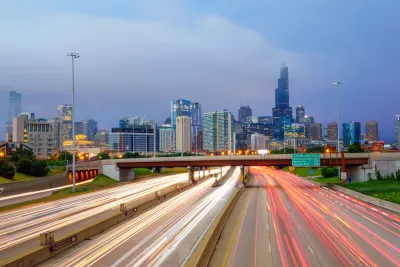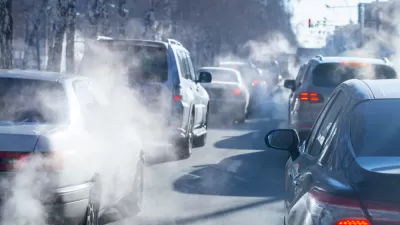The organization claims the standards used by cities are consistent and capture the most policy-relevant emissions.

On the heels of a study that indicated a broad underreporting of local greenhouse gas emissions by U.S. cities, ICLEI-USA (the U.S. chapter of Local Governments for Sustainability) has issued a press release rejecting the study's findings. "The GHG accounting method in the study is atypical in local GHG accounting, it is not fully comparable with city inventories, and does not address some of the key policy levers that drive cities to conduct GHG inventories and develop GHG mitigation strategies," ICLEI-USA claims.
The press release explains that the U.S. Community Protocol for Accounting and Reporting of Greenhouse Gas Emissions (USCP), an index used by many communities, "details science-based methodologies and best practices to guide local governments as they measure and report the GHG emissions and removals associated with their communities," highlighting the policy areas where local intervention has "the best opportunity" to reduce emissions and increase carbon sinks. "Local government practitioners developed community GHG accounting protocols to provide actionable results for decision makers and align with national inventories for multi-level collaboration. To imply that cities have erred in reporting emissions is misleading and does a disservice to the thousands of local governments doing their part to solve the climate crisis."
ICLEI is the developer of the USCP tool, which they say is "developed to provide local policymakers and their communities with the most appropriate understanding of how their community’s activities translate into GHG emissions." Using their standards, they claim, cities can get a better understanding of their role in GHG emissions and which policy decisions can make a real impact at the local scale.

Planetizen Federal Action Tracker
A weekly monitor of how Trump’s orders and actions are impacting planners and planning in America.

Map: Where Senate Republicans Want to Sell Your Public Lands
For public land advocates, the Senate Republicans’ proposal to sell millions of acres of public land in the West is “the biggest fight of their careers.”

Restaurant Patios Were a Pandemic Win — Why Were They so Hard to Keep?
Social distancing requirements and changes in travel patterns prompted cities to pilot new uses for street and sidewalk space. Then it got complicated.

Platform Pilsner: Vancouver Transit Agency Releases... a Beer?
TransLink will receive a portion of every sale of the four-pack.

Toronto Weighs Cheaper Transit, Parking Hikes for Major Events
Special event rates would take effect during large festivals, sports games and concerts to ‘discourage driving, manage congestion and free up space for transit.”

Berlin to Consider Car-Free Zone Larger Than Manhattan
The area bound by the 22-mile Ringbahn would still allow 12 uses of a private automobile per year per person, and several other exemptions.
Urban Design for Planners 1: Software Tools
This six-course series explores essential urban design concepts using open source software and equips planners with the tools they need to participate fully in the urban design process.
Planning for Universal Design
Learn the tools for implementing Universal Design in planning regulations.
Heyer Gruel & Associates PA
JM Goldson LLC
Custer County Colorado
City of Camden Redevelopment Agency
City of Astoria
Transportation Research & Education Center (TREC) at Portland State University
Camden Redevelopment Agency
City of Claremont
Municipality of Princeton (NJ)





























